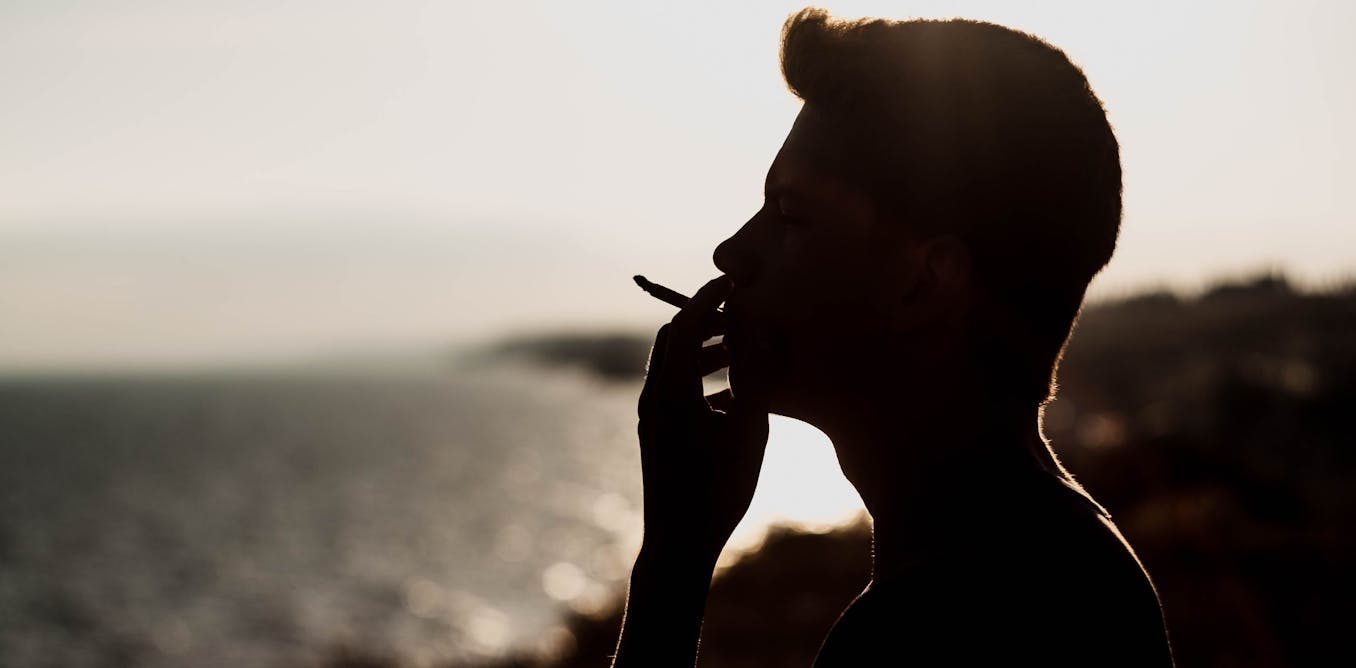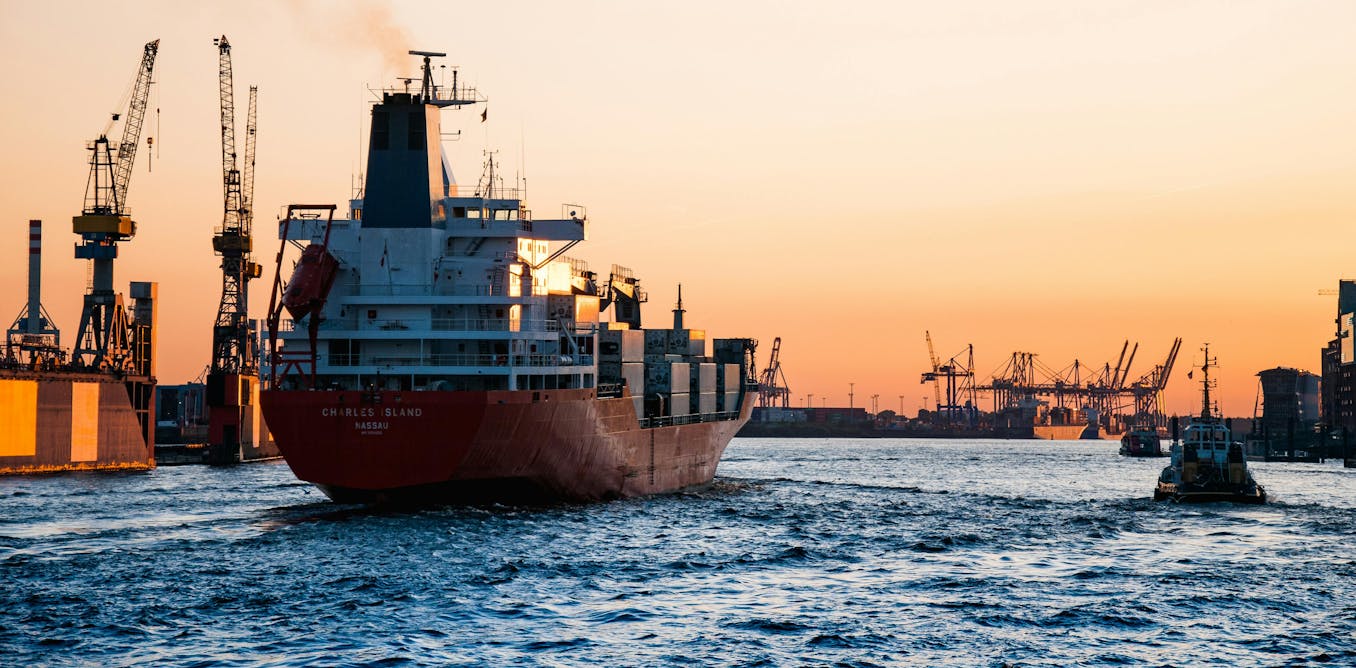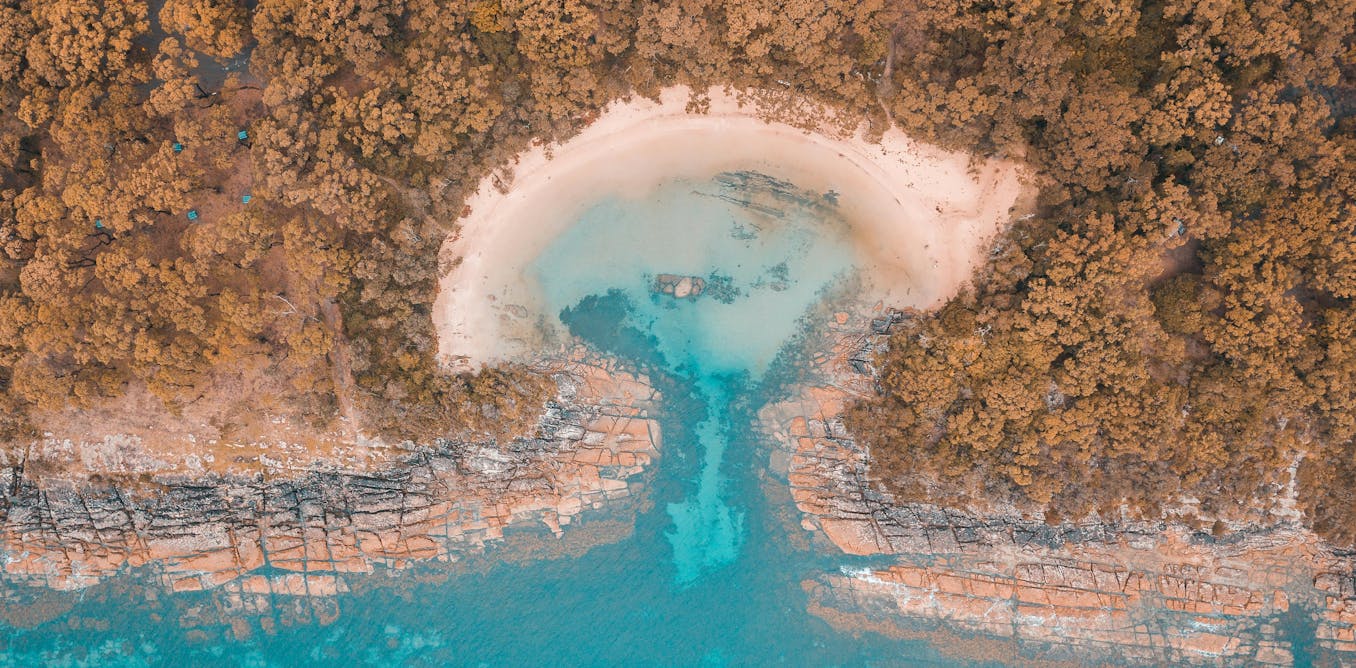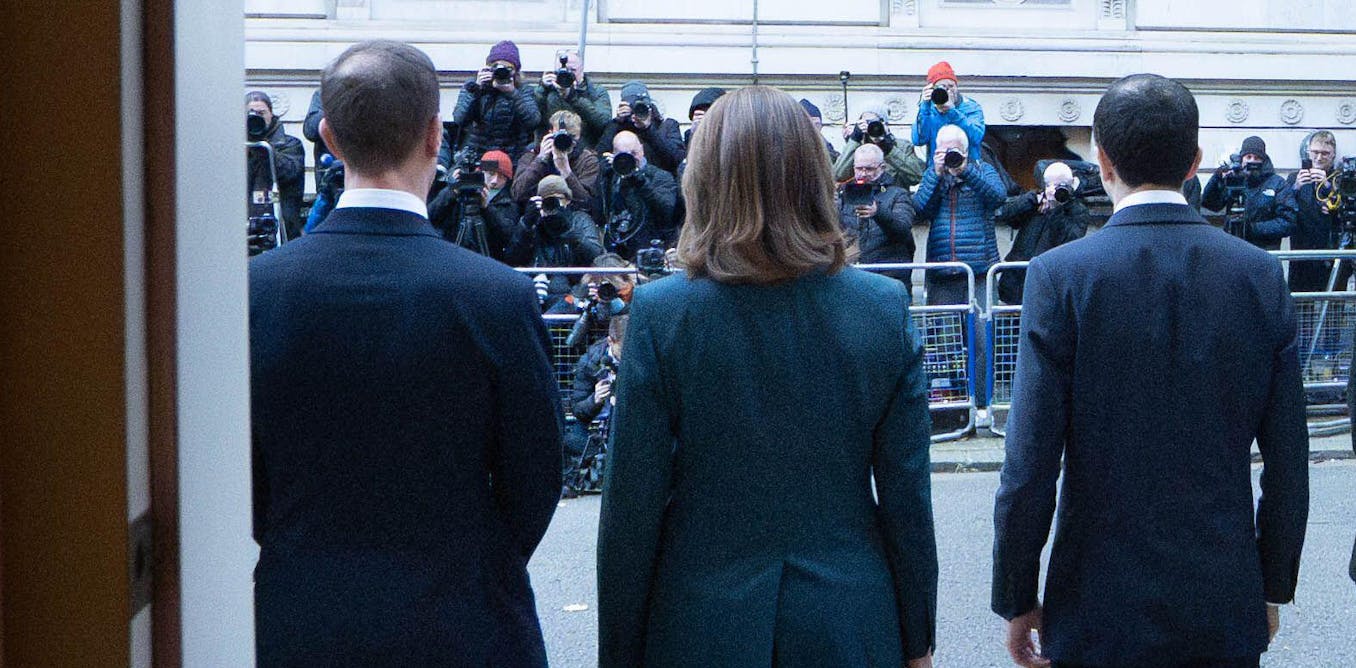Natural paradise under threat in Albania – Will the Lagoon be saved? | DW Documentary
The flamingo habitat in the Albanian nature reserve of the Narta Lagoon is under threat. An international airport is to be built here to boost tourism. But it will come at the expense of one of Europe’s last untouched natural paradises.
A large international airport is to be built in the immediate vicinity of one of Europe’s first wild river national parks, in Albania. According to the Albanian government, it will bring tourists to the country and create jobs.
But building an airport in the middle of this large, untouched wetland would destroy one of the last natural paradises in Europe, warns Zydjon Vorpsi, who works for an Albanian environmental protection organization. He’s particularly concerned about the many rare bird species that live and breed in the Narta Lagoon area, which he regularly counts and catalogs. Whether rare pelicans, flamingos or endangered species such as the wood sandpiper or the curlew – they would all be threatened by the project.
Although the Narta Lagoon enjoys national and international conservation status, construction is already underway. Zydjon Vorpsi and the PPNEA (Protection and Preservation of Natural Environment in Albania) initiative argue that the airport project in the Vjosa-Narta protected area violates Albania’s own laws and also breaches international agreements on the protection of biodiversity, ratified by the country itself. They have filed a lawsuit against the project and are supported by foreign nature conservation organizations. Can they still stop the construction? It’s a race against time. The airport is scheduled to be finished by 2025.
#documentary #dwdocumentary
______
DW Documentary (English): https://www.youtube.com/dwdocumentary
DW Documental (Spanish): https://www.youtube.com/dwdocumental
DW Documentary وثائقية دي دبليو (Arabic): https://www.youtube.com/dwdocarabia
DW Doku (German): https://www.youtube.com/dwdoku
DW Documentary हिन्दी (Hindi): https://www.youtube.com/dwdochindi
Watch the video by DW Documentary
A sanctuary for birds in southern Albania. Each year, Joni counts the birds in Narta Lagoon. Every day we can count here from 2,000 up to 4,000 individuals. If we put airplanes here, it would be completely a disaster. Nearby, the government is building an international airport. Right in the middle of a nature preserve.
Itís meant to bring in more tourists. This is illegal at the end of the day. Starting from the lack of public hearing, from the lack of consultations, from the environmental impact assessment and many, many other issues. Can Joni and his environmental protection agency halt the airportís completion?
Zydjon Vorpsi – friends call him Joni – loves taking pictures of birds. Itís also his job to count them. He works for the environmental NGO ìProtection and Preservation of Natural Environment in Albaniaî, or PPNEA for short. Heís been out here for three weeks. His job requires patience.
Sometimes, it takes days to spot a rare bird species. Oh yes, I was known for my patience since I was really young. I used to play basketball and one of the things the professor used to tell to the team and to me was, that I should keep being patient as I was
And should suggest to others to be patient as well. Heís worried about the Dalmatian pelicans. They come here in search of food, and fly directly over the area where the airfield is planned to be built. A species that is bouncing back now that is still having a status
Of being critical in danger will be more threatened tomorrow, because one of their main habitats will be not so easy to reach. So, it is really hard for the pelicans to get used to the hours of flights and this will pose also a threat on the aircrafts as well.
For years, Joni and his organization have been counting all the native and migratory birds in this lagoon. There are over 200 species, and the numbers are rising. This area is crucial for the preservation of rare bird species across Europe. But Albaniaís government doesnít seem to care, Joni says.
These numbers are also provided to the government, so they can have better management interventions. All these datas, it seems like they are not ever seen, ever observed. It seems as if they are like somewhere in a dusty place in the offices of the government, of the decisionmakers.
Further on, we meet professors and students from the University of Tirana. For many years biologists and geologists have been collecting data on the Vjosa river, that drains into the Mediterranean not far from here. They are looking to prove how ecologically diverse this region is.
Plegadis falcinellus, look how many there are. Wow, theyíre huge! Those are glossy ibisses – they’re twice as big as you usually see. Professor Ferdinand Bego explains that this region is crucial for certain species. This area might seem unimportant, but itís their habitat. These freshwater reserves south of Zvernec
Are the only place they can survive. Is the glossy ibis edible? You can eat it, but it smells bad and doesnít taste like much. You have to marinate it first. Professor Aleko Miho and his colleagues have found plenty of indications that this area is ecologically healthy. Theyíre also familiar with Joniís data.
In past few years, this region has recovered in many ways. For example, the numbers of birds and species are rising. Something we can prove, because the populations are counted every year. Thatís one of the reasons why we insist this area is protected. Theyíre talking to a journalist,
Telling her about the foreign researchers who support their work. Iím glad some of them have come to join us. Austrian colleagues will be in the mountains in Tepelene this summer. A professor has joined us from Vienna, and they will help us analyze and summarize the data. Theyíre all working toward the same goal.
They want to see the Narta Lagoon included in the recently established Vjosa Wild River National Park. If they can get the Vjosa river delta included in the national park, that would mean the end of the airport. The coast is a treasure trove for the groupís geologists.
Soft rocks, sculpted by wind and the waves. Constant change. Other European universities are also interested in this unique coastal landscape that Professor Cercis Durmishi is showing to his students. We have students from there come to us, and our students go there to get their diploma. We offer joint degrees.
Weíve also conducted joint PhD programs with Albanians, Germans, Belgians and the French. Theyíre well-connected. They hope that will help them preserve the landscape here. Joniís PPNEA has joined forces with other organizations to take legal action against the airport. They cite procedural errors,
And say the disputed area was removed from the nature reserve retroactively. The runways for take-off and landing are over three kilometers long. The terminal is up next. It should be able to handle up to two million passengers a year. The project has also drawn criticism at the EU level.
There are reactions from the European parliament, from MPs. They have requested to the commission what will be done to stop this construction here in the protected area. Iím coming over to say something You want to come say something? No, no. What would I say? As a private citizen, sure.
If I werenít working, I know just what Iíd say. Youíre fantastic. Better not ask me, or Iíll get fired tomorrow. Okay. The guard offers to get his bosses – but theyíve suddenly vanished. He does though find plenty to say. Of course, as a private citizen.
Even if they do fire you, weíll find work for you. Where can I find you? I’ll give you my number Not many dare criticize the airport out loud. Theyíre too afraid of the government. The airport should be completed by early 2025. We also had pressures from the government I would say.
There was something like a speech of the prime minister at the proclamation of Vjosa National Park, where he was talking directly to those who were against the airport to stop with that, because the airport will be built either way and we should not annoy the government anymore
With our efforts to stop this airport. Joni and his compatriots have protested at the building site more than once. But Albanian media have so far ignored them. Residents from the nearby villages are unimpressed by the protests. They hope the airport will enable them to lead better lives.
Others, like Bexhet Deliu, arenít so sure. When they started constructing the airfield, they shut our electricity and water down several times. We had to pay for repairs ourselves, the state didnít hand over one cent. Then the finance minister Arben Malaj came by. He was looking for votes, he wanted to get elected.
He got the votes, and we thought maybe something would change now. But it didnít, it got worse. The Akerni village near the airport is home to mostly elderly residents. Their children have moved away, to Germany, Italy, France. Xhavit Selimi hopes the airport will bring them back.
I spoke with my eldest son. I asked him if he was coming to Albania. ëAre you coming back, now that we have an airport on our doorstep?í Well done state, prime minister and construction firm! Zoje Bardhi is 77 years old. She hopes the airport will make her day-to-day easier.
The streets are paved for us, the airport is built for us. Why should someone from abroad fly to Tirana when they can fly here? Itís very good. Relatives in Germany will come. My nieces and nephews in Germany will come. Very well done, really. Iím very, very happy.
Back at PPNEA, itís time for members to go looking for nests. Every year, in April and June, they set out to see which birds have laid their eggs in the Narta lagoon. The muddy ground is a vital habitat for many birds. Their nests are well-concealed (for the most part).
Theyíve found that many breeding grounds are right next to the planned airport. As soon as the airport is completed, people will realize that what the government and the media have been claiming isnít true. ëOh, no, itís far away, itís so far away.í We can see that itís much closer.
The birds lay their eggs here, because itís quiet. Once the noise and lights disturb everything, that will all be over. This is the third water basin. In the next water basin, weíre only 50 meters away from the airport terminal and just 100 or 200 meters away from the nests of various birds
Breeding in this area. No nests so far. Only pelicans in search of food. All the others seem to have hidden well. Then, finally. Look at that, thereís a nest here. It belongs to a Kentish plover – they typically have three eggs. At least thatís a sign theyíre nesting.
Theyíre getting harder and harder to find, because they donít have fixed nesting sites. They donít build actual nests that would be easier to spot. Iíll mark this nest here. Very good. Weíd best keep moving, so we donít disturb them. Joni is scheduled to give a presentation for students from the US
Who are traveling in the area. Heíll be speaking about the airport, as well as other construction projects along the coast that the government is officially planning. This is the plan. We see that on the coastline there is not anymore that quietness that we saw all the days.
There is a marina and a city on the other hand, so you see all these buildings and all this other infrastructure. The Albanian Ministry of Tourism and Environment declined an interview, but stated that it was taking nature into consideration. Even Prime Minister Edi Rama assured
That there were no environmental concerns with the project. Vlora International Airport will be operated by Munich Airport. Munich Airport would not have become a partner if there were any environmental concerns. The fact that Munich Airport will operate Vlora International Airport is important. Very important.
Munich’s involvement is a common talking point in Albanian media, but it doesn’t tell the whole story. Because there is no public debate about the airport plans, false information has a long shelf life, Joni says. There has been this lack of dialogue with different parties,
Because no one was putting us in the same table to discuss this issue. So, this big machinery of propaganda is really hard to be fought by the NGOs. The only way to beat it is with other environmental protection agencies and scientists. Joni is in frequent contact with them.
The professors and students continue gathering data. They are putting together a publication they hope will convince the government to protect the area. This entire habitat would be severely disrupted. The airport would not run well, and the air corridors would hinder any birds trying to pass over the Narta lagoon.
Right where the airport is meant to be built. I think the airport is important for Albaniaís development. But one must always include environmental specialists. These experts should be the ones to decide whether an area is suitable or not. All of that has been brought before the court now.
And we hope that soon, the court will make the right decision. The many different plants are just one indication of the biodiversity that can be found here. Several years ago, professors here fought against dams on the Vjosa river. This isnít their first battle. Some years ago, when we started for Vjosa,
The people around were laughing. You would protect Vjosa? And in that time, big companies started to work to make a dam. And now, 10 years later, we, all is stopped with protests here and around from the international community until the government woke up and started to cooperate.
Today theyíre joined by a member of the state’s tourism agency. Ervin Buzi believes the airport should be built, but in a way that ensures itís in harmony with nature. Of course it wonít work if we donít build streets and infrastructure for water and electricity. Airports really are important for tourism, after all.
But we should find a reasonable solution in order to preserve the beautiful nature here. But the professors are convinced this area is unsuitable for mass tourism. Below the surface, the ground isnít stable; itís constantly changing. This is a river delta, like that of the Vjosa river.
When the currents are strong, the river changes direction. Instead of flowing to its end point, the river will burst out and create a new delta. As the new pathway grows, the old begins to erode. This is what we call geomorphology. Itís the struggle between earth and sea.
Climate change has also left its mark. Sea levels are rising higher and higher, Professor Bego says. Not even pumping stations would make much of a difference. Even if you invest in such a pump, they could not push the water into the sea any longer,
Because the sea level woud be here and the pumping station would be here. So, whatever you invest can not survive. And the coastal area would be inundated including the airport area, which is today under the sea level. It is maintained like that by pumping stations. But when the pumping stations will collapse,
They will say that these are extreme and unforeseen forces, and the government will say excuses to whatever investor or the public. We did it, but it is because of that, because of the wild. In the end, nature might even reclaim the airport.
The city of VlorÎ is just south of the Narta lagoon. I tís a rapidly growing tourist destination. The student group from Cincinnati is already here waiting for Joni. You know that there is that big project of airport in VlorÎ and the community has pro and against,
Because there are some issues that Joni is going to present to you. Good morning from sunny VlorÎ. Joni talks about why he believes the airport plans are against the law, and why they have been brought before court. He says the land was retroactively taken out of the nature preserve area.
You can see there that patch that looks like a runway. So, this is removed, and it is in the middle of the protected area. Everything around it, its a protected area, and that part, its not. To Joni, itís important that the world knows about whatís going on.
He does not want to rely solely on court cases. A little further north, the Karavasta lagoon is home to the pelicans who would regularly have to overpass the airport to reach their habitat. Ardian Korci, their keeper, is an old friend of Joniís. They often venture out together to visit the Dalmatian pelicans.
This is where Joni first took up the fight to protect birds and the environment. And this is where he returns to keep an eye on how the protection of the endangered species is progressing. The first species I was working with is the pelican in 2017, and the end of 2016.
And I was the coordinator of the project that we had back then to restore the population here. Want to go to the platform? Sure. The pelicans are very timid, this is as close as they can get. This is Albaniaís only breeding colony, and itís brooding season.
In recent years, the pelican population has recovered. Something the environmentalists are proud of. Compared to when we started, itís quite a difference! Absolutely. Looking back, in 2014, there were 37 nests; now thereís nearly 70. Thatís almost twice as many. Itís promising. A small, noiseless drone gives the researchers a closer look
Into the colony. They try to bother the animals as little as possible. If humans were constantly on their island or near the places where they eat, then they would be disturbed. These are very interesting animals to tourists, but we keep a close watch on how many tourists we allow into this area.
Mass tourism and a large airport would reverse all the hard work theyíve done to protect these pelicans. Two cases are at court now, but itís unclear when the courts will make their decision. This could take a while. Fighting for the birds and for nature is often an uphill battle.
But this is where Joni gathers his strength. This is where he is reminded of what heís fighting for. We know that this will go on for years. But there is always something that convinces us to go back and yeah, for the moment I come here,
I am convinced that this fight should go on and the fight for all natural places should go on.
About DW Documentary
DW Documentary gives you information beyond the headlines. Watch top documentaries from German broadcasters and international production companies. Meet intriguing people, travel to distant lands, get a look behind the complexities of daily life and build a deeper understanding of current affairs and global events.
Video “Natural paradise under threat in Albania – Will the Lagoon be saved? | DW Documentary” was uploaded on 03/17/2024 by DW Documentary Youtube channel.




































